-
ABOUT US
-
ACADEMICS
Curriculum Program
Departments
- English
- High School Chinese
- Primary and Junior School Chinese.
- High School Mathematics
- Middle School Mathematics
- Primary School Mathematics
- Music and Fine Arts
- Physical Education
- Physics
- Chemistry
- History and Geography
- Physical Science and Optional courses Department
- Middle School Biology
- High School Biology
- Social Sciences
- Computer Science
- Courses in Primary School
Achievements and Matriculations
College Counseling
Science & Technology Innovation Contest
Subject Competition
-
ARTS
-
ATHLETICS
-
AT SHSID
SHSID ∣ TIMES
PTSA
Club Exhibition
- 龙吟社
- Live 2 Drama
- Choir
- Hip-pop Dance Club
- The Primary School Dance Troupe
- Symposiums Club
- Biology Workshop
- You Shan
- VEX Robotic
- Peking Opera Club
- Baseball Club
- Model United Nations
- The World Scholar’s Cup
- Future Problem Solving Club
- United States Academic Pentathlon
- OM Club
- AMC Club
- Music for Patients
- SHSID Gazette
- Smile Charity
- Cultural Moments
- SciAcademy
- Stem Doge Alliance
- Chinese Debate Club
- IAA
- Mock Trial Club
- Zhengming Club
- Art-to-zine
- Bananaheads
- Electronics
- Furry Friends
- GT-Racing
- MCG Philharmonics
- Village Radio
- IMMC Club
- Creative Design and Intelligent Fabrication
- Future City Research Project
- ECOCAP
- AdvocaSEA
- SPDC
- Medishine
- Floorball Club
- Animusic MTC
- Wings Up
Health and Wellness
Campus Safety
Cafeteria Service
-
ADMINISTRATION
-
ADMISSIONS
-
ALUMNI
Alumni Information
Honors Students
- Class of 2025
- Class of 2024
- Class of 2023
- Class of 2022
- Class of 2021
- Class of 2020
- Class of 2019
- Class of 2018
- Class of 2017
- Class of 2016
- Class of 2015
- Class of 2014
- Class of 2013
- Class of 2012
- Class of 2011
- Class of 2010
- Class of 2009
- Class of 2008
- Class of 2007
- Class of 2006
Who Studied at SHSID
SHS Foundation
-
DOCUMENTS
Puxi Campus G1: "Fresh" Story, "Fresh" Growth.
The "Fresh Classroom" has started. The first-grade children walked into the "Dessert School" in the second half of the semester. There, the children made many new friends: the “fishbone congee” who speaks with barbs, the sesame seed cake boy who is always forgetful, the fresh milk girl who proves herself with strength, the emotional steamed bun... Each friend brought fresh stories and fresh experiences, full of childlike innocence and fun.
This semester, the book Fresh Classroom stood out with its multitude of humorous stories, and soon became everyone’s first choice during reading time. This book is especially suitable for first-grade children, as it is written with accessible and natural language. Every competition, every dispute, and every word of encouragement within its pages resonated closely to the children's lives. These stories were easy for children to relate to and allowed them to reflect on themselves and their friends. The book also shed light on moral education by way of simple and easy-to-understand truths and lessons, which provided children with guidance and education to help them establish correct values and behavior norms.
The excellent stories were combined with diverse forms of activities. The children were tasked with reading 1-2 stories in the book every week, and then rotate and practice in the classroom through station activities. Group 1 carried out colorful coloring activities. The children colored the plots in the book and matched them with corresponding dialogues, which greatly stimulated their imagination and creativity. Group 2 conducted new word challenges by filling in the blanks in sentences with the new words learned in the book, and trying to find the given words in the text at the same time, effectively consolidating vocabulary knowledge. Group 3 encouraged independent reading by writing down the favorite plot and drawing it, cultivating the children's independent thinking and expression abilities, Group 4 engaged in peer reading, reading with partners and exchanging their own views, promoting interaction and cooperation among classmates. Group 5 was even more ingenious, using Puppetpals2 learned in computer class to make a sitcom for the story plot in the book, allowing the children to deeply understand the story in the performance. Each group's activity lasted for 8 minutes and rotated to ensure that every child could fully participate.
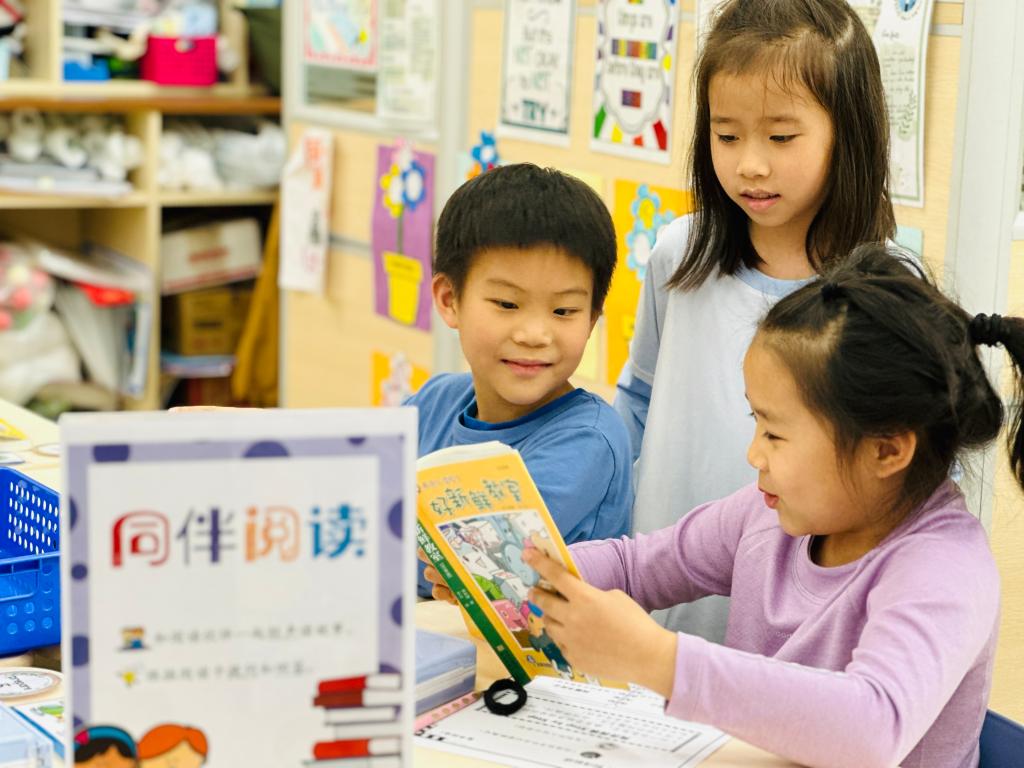
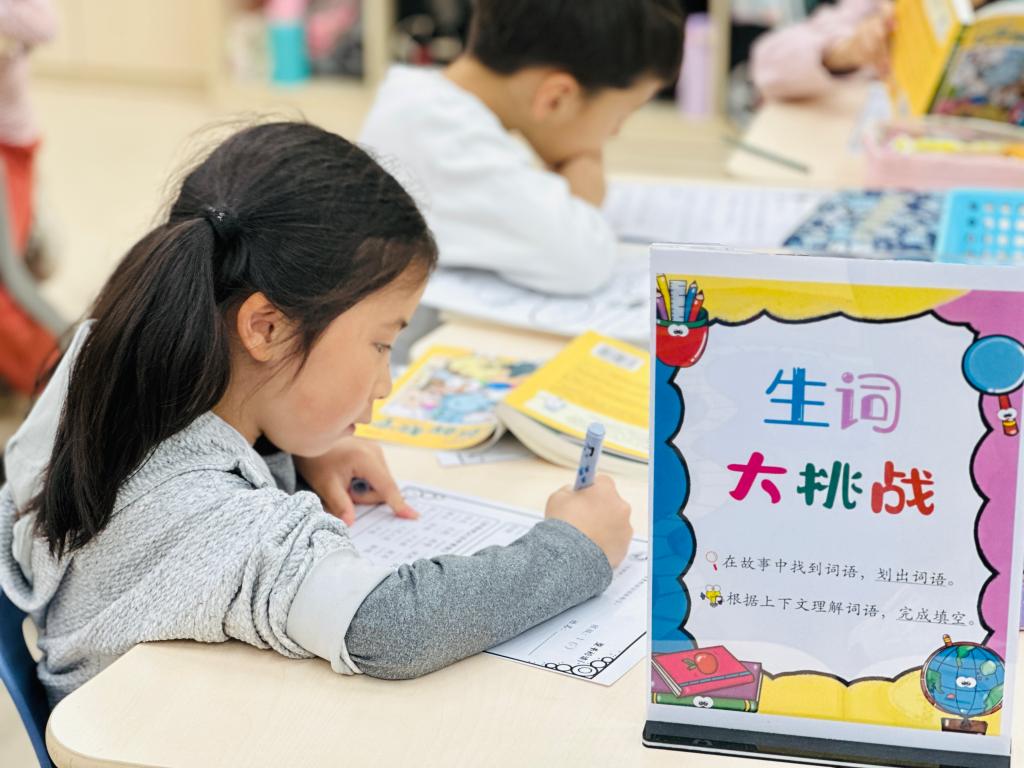
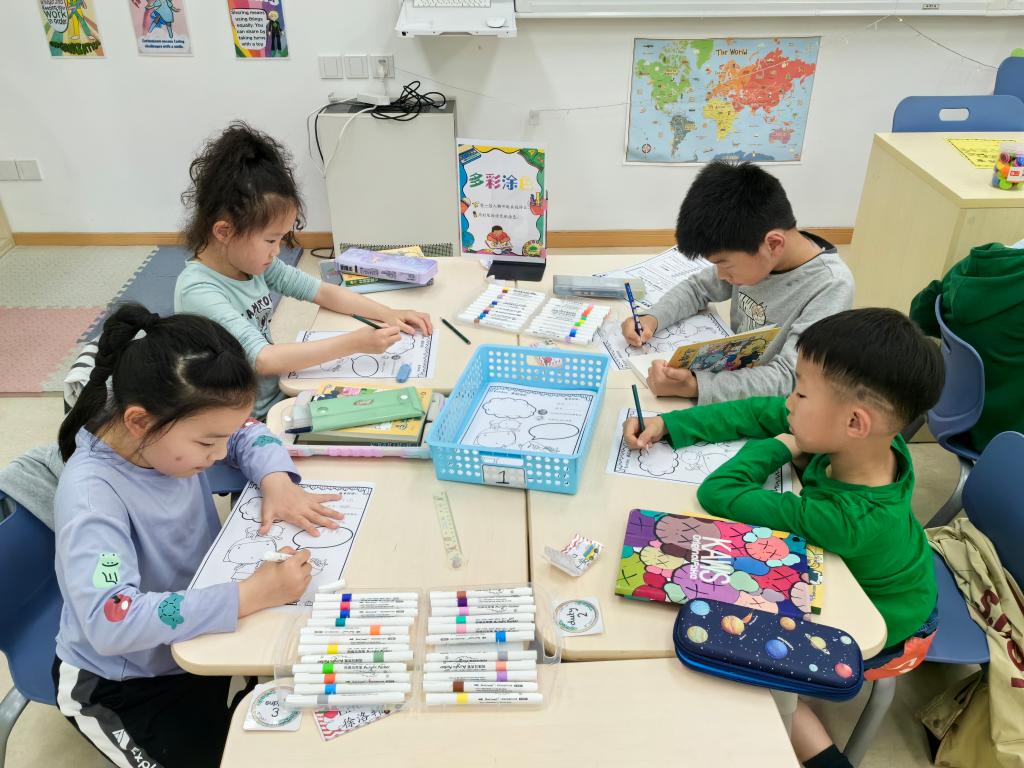
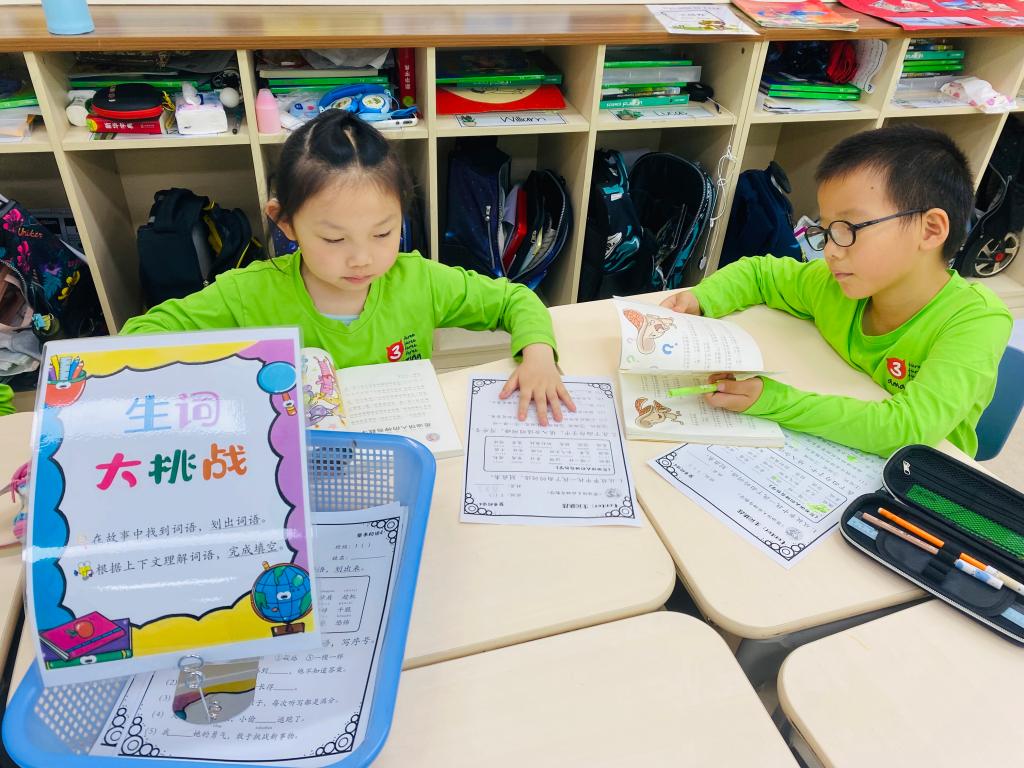
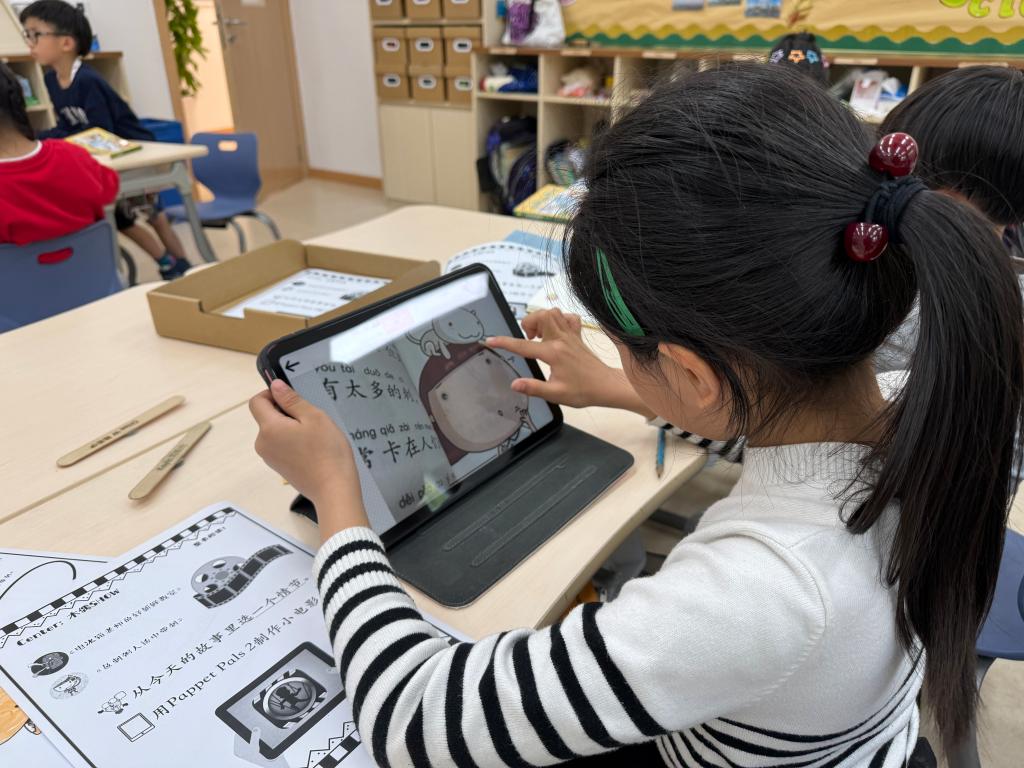
The activity lasted for a full 4 weeks. During this period, the children were immersed in the joy of reading and continuously improved their reading fluency and comprehension. The night after the activity stations, the children also needed to complete a reading report. This reading report not only required the children to express their understanding of the story, but also carefully fostered parent-child communication. The story helped them build a bridge of kinship, allowing the children to listen to the parents' opinions on the story and their expectations for them, while also allowing the parents to better understand the children's reading situation and thinking development.
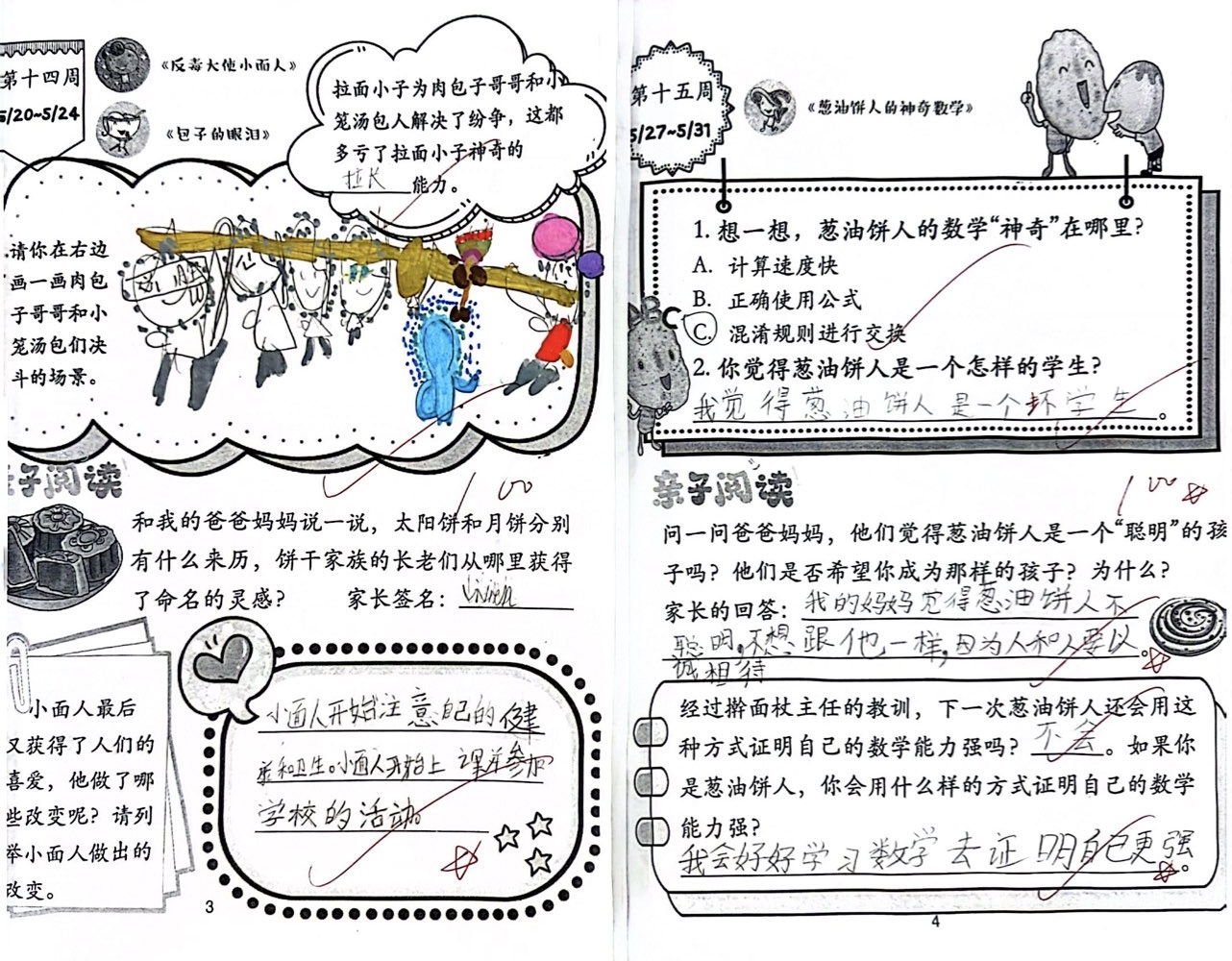
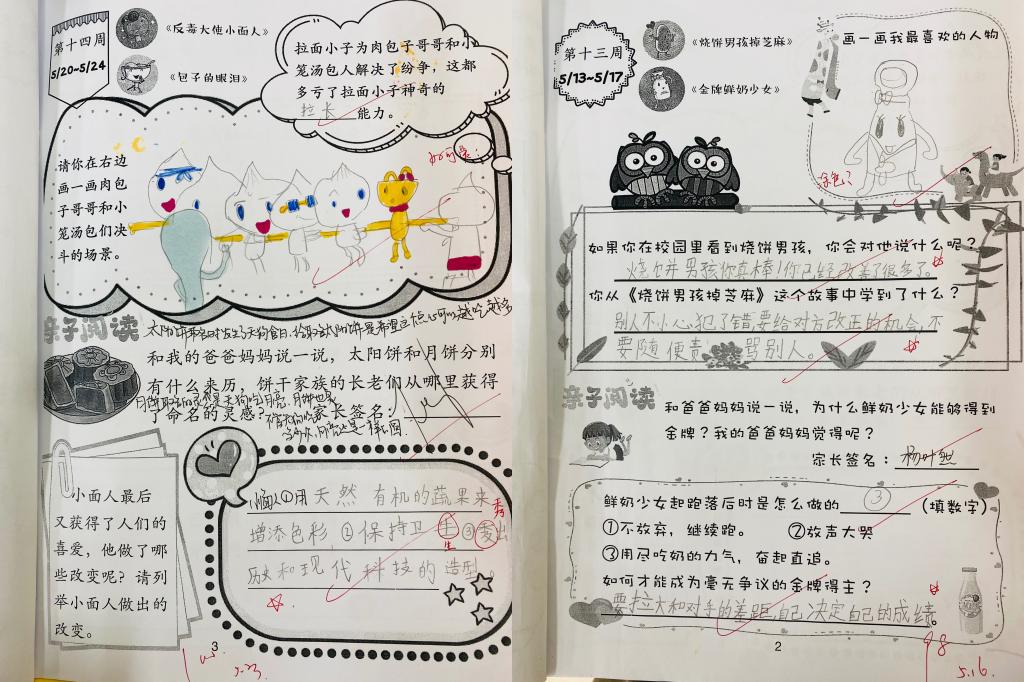
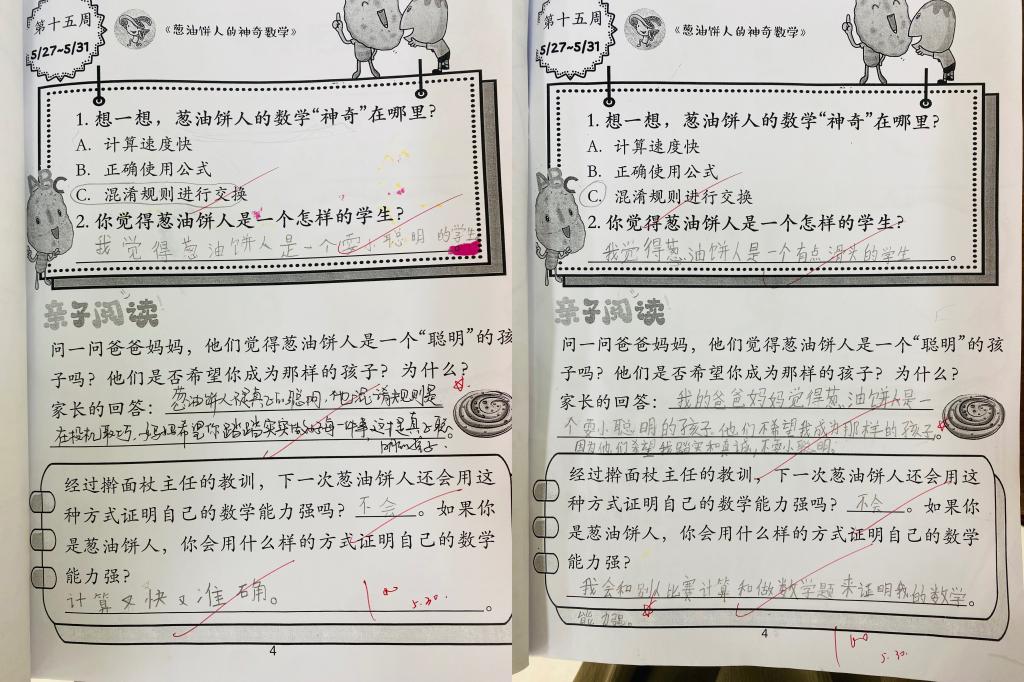
"The Sesame Seed Cake Boy Drops Sesame Seeds" taught us to give others second chances. "We should pick out the 'barbs' in the words to make others happy and ourselves happy", "True cleverness is to prove with one's own ability instead of by opportunistic means". One story after another, the children obtained nourishment, irrigated themselves, and let themselves become a stronger seedling. They also projected their own losses and disputes into the stories, learning solutions in them, and gaining comfort. This is the power of the story.
Written by Thea Chen
Picture by First grade teachers
Edited by Cong Luo, Bianca Noguera